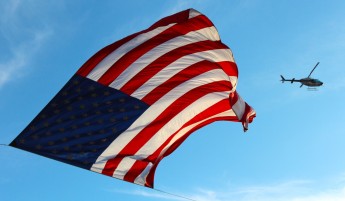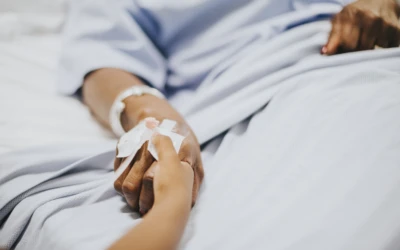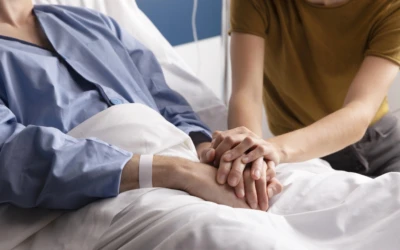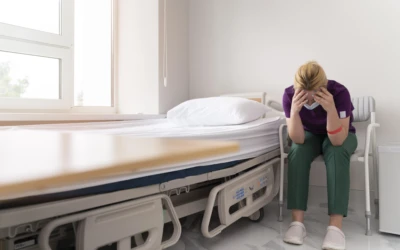Healthcare in the United States is among the best in the world thanks to highly-trained doctors, nurses and specialists who offer excellent services in modern state-of-the-art hospitals and clinics. An impressive 34 of the world’s top 50 hospitals are found in the US.
The US spends 17.4% of GDP on health, the highest amount in the world. Modern technology and the latest drugs are available, resulting in excellent healthcare, but all this comes with a hefty price tag. Although the USA has the most expensive medical system in the world, it also has the most advanced, with a resulting high life expectancy of 75.92 years for men and 80.93 for women. Unlike other countries that may have government-run healthcare systems, the medical system in the US is 100% private. You will find a huge choice of hospitals, doctors and specialists wherever you stay in the USA and there are no waiting lists for treatment.
The US continues to attract many millions of international visitors for both business and pleasure each year. It offers a high standard of living and healthcare to match. With adequate health insurance cover in place, you can rest assured that if you need healthcare during your stay in the US, you will receive the best treatment available.
Before you go:
Medical Insurance
The US Embassy strongly advises that all visitors have medical insurance. Many visitors are unaware of the huge financial risk they are taking if they fail to take out adequate health insurance, whether they are planning to stay a week or a year. In the event of an emergency, visitors may find themselves facing unexpected medical bills, or worse, they may be refused treatment without evidence of insurance and a sizeable deposit.
Always carry your health insurance details with you as you will need to present them if you need any type of healthcare during your visit. Some healthcare policies may only cover emergency medical treatment in the US and then pay for repatriation for follow-up care and treatment, so check the small print before you travel.
It is advisable to have a medical and dental checkup before travelling and you should obtain sufficient medications for your trip, if practical. Make sure you keep medication in its original packaging with a copy of the prescription to avoid problems at customs. It’s also a good idea to carry a copy of your health records with you when you travel.
Vaccinations
No special vaccines are required for travel to the US although it is a good idea to be up-to-date on routine immunisations such as measles, polio, tetanus-diphtheria-pertussis and varicella.
While you are there:
Healthcare
If you plan to spend a lot of time outdoors, there is a risk of Lyme disease, transmitted by a bite from an infected tick. Wear insect repellant as a deterrent and remove any ticks from your skin. You should consult a doctor if the area develops a rash. A course of antibiotics can cure the disease.
Rabies is present in bats as well as in stray dogs and raccoons. Avoid contact with these animals and get immediate treatment if scratched or bitten.
Although the USA has no malaria, there is a slim chance of contracting West Nile Disease from a mosquito bite. Keep skin covered and use insect repellant when visiting areas where there are mosquitoes.
There are some medical terms in the American vocabulary that may be helpful for expats to know:
- Chemists are known as Pharmacists in the US
- Casualty Departments or A&E are called Emergency Rooms
- A GP is known as an MD, physician or primary care provider
Doctors and Hospitals
Although most people with a health problem visit their primary care doctor first, there is nothing to stop you from going direct to a specialist under the US healthcare system. However, you should get consent from your insurance provider before incurring any non-emergency treatment. Access to certain hospitals or doctors is usually determined by whether a particular doctor or hospital participates in the patient’s health insurance carrier’s network of providers or accepts the patient’s health insurance carrier for billing.
For minor ailments, visitors will find Urgent Care Centres to be useful and they are usually open seven days a week. Simply turn up and wait to see the doctor on duty. Keep all receipts for the visit, including any payments for tests and medications, and submit them to your health insurance provider for reimbursement.
Expats planning to stay longer than the usual vacation should register with a family practitioner who will keep your records and perform any routine medical check-ups. You will need to provide your social security number if you have one, your health insurance details and your medical history on your initial visit.
American hospitals are very well regarded. If you need to attend an emergency room (A&E) you can expect a long wait in busy city hospitals. If you have to be admitted, you should check what your health insurance will cover and whether payment will be made direct to the provider. Depending on the type of insurance coverage you have, you may be responsible for a portion of the bill. If so, the hospital will usually send you a bill after you are discharged. Make sure you keep receipts for any payments you make for treatment or drugs.
Dental treatment in the US is excellent and is all private. The best way to obtain emergency care outside business hours is by attending an Urgent Care Centre where the doctor may be able to administer temporary pain relief.
Most major medications are available from a pharmacy but you may need a prescription from a local doctor. It may be useful to know the generic name of your medication to take advantage of cheaper options.
US Private Healthcare System
Healthcare in the USA is run as a collection of private businesses, from doctors and hospitals to blood screening and emergency care. All these businesses operate for profit and there is no state safety net for expats and visitors, so health insurance should be an important consideration for every visitor.
The latest health reforms in the USA require that every American must buy health insurance, either individually or through their employer. After retirement, the state-funded Medicare system kicks in to cover the cost of treatment, but it still requires large co-pays from recipients for healthcare services and prescriptions drugs.
Always carry your health insurance details on your person in case of an emergency. If you need any type of healthcare you will need to show you have adequate cover, or pay a sizeable deposit. Hospitals, emergency rooms, and urgent care facilities are not allowed, by law, to refuse medical care based on lack of finances or medical expense coverage but expect to receive an invoice shortly after treatment.
Medical Transport
Emergency services are efficient and standards are excellent. In an emergency, ambulances will take patients to the nearest hospital. If it is your decision whether or not to go into hospital, you should check that you are covered under the terms of your insurance and take proof of the policy to the hospital.
Important telephone numbers
The emergency telephone number to call for police, fire or ambulance services in the US is 911.
Conclusion
Many visitors come to the US every year and have no health issues. However, if the worst happens and you require medical treatment in the US, expect to receive some of the finest care in the world but pay the price. For this reason all visitors should arrange adequate health insurance before leaving home.
Author : https://www.cignaglobal.com/resources/country-guides/usa
Any questions :
Do you need a quote for your health insurance in the USA : cick here




